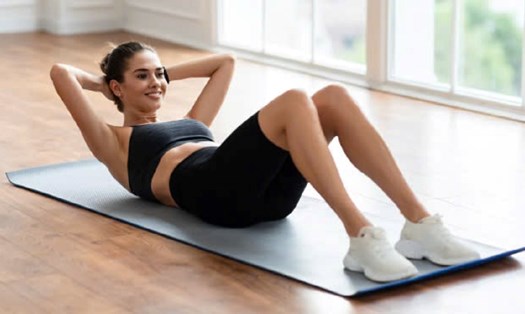Nutritionist and fitness trainer Garima Goyal (India) - emphasized that sit-ups are good for abdominal muscles, but doing them in the wrong position can cause potential injuries, especially in the back area.
Tension in the neck and lower back
One significant downside to sit-ups is the potential for strain on the neck and lower back, says Garima Goyal. The repetitive flexion of the spine during sit-ups can lead to discomfort or even injury, especially for people with pre-existing conditions such as herniated discs or lower back pain.
“In some cases, people may be using their neck muscles incorrectly while doing crunches, contributing to neck strain,” says Goyal.
Focus on just one abdominal muscle
Furthermore, crunches primarily target the rectus abdominis, neglecting other core muscles. Overemphasizing this muscle group can create muscle imbalances and fail to address overall core strength.
A comprehensive core workout includes exercises that target different muscle groups, such as the obliques and transverse abdominis, which are important for stability and injury prevention.
Increased risk of fractures in certain groups of people
For people with certain health conditions such as osteoporosis, crunches can cause problems such as increasing the risk of compression fractures in people with low bone density.
Not recommended for overall fitness
Additionally, crunches may not be the most effective exercise for achieving overall fitness goals. While they can help strengthen your abdominal muscles, focusing on compound movements that work multiple muscle groups may yield better results in terms of functional strength and calorie burn.
Compound movements like squats, deadlifts, and lunges offer more comprehensive benefits, says fitness trainer Goyal.
Consequences of incorrect posture
Incorrect posture when doing crunches can also lead to poor results and potential injury.
“For example, using momentum instead of controlled movements can reduce the effectiveness of the exercise and increase the risk of muscle strain,” notes Garima Goyal.
Discomfort in the hip flexor
Additionally, some individuals may experience discomfort in the hip flexors during crunches. Tight hip flexors can limit range of motion and lead to discomfort or strain.
Stretching and addressing any flexibility issues before incorporating crunches into your routine can help minimize this problem.









